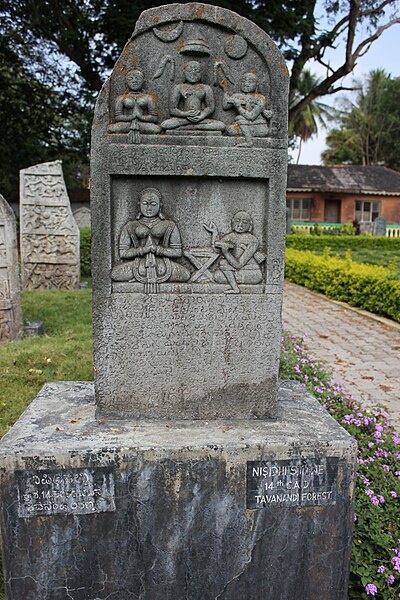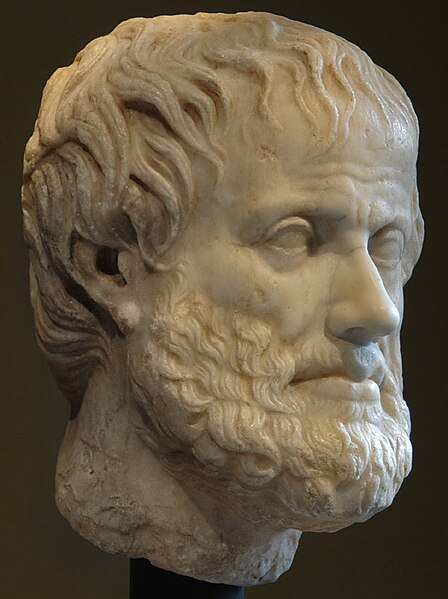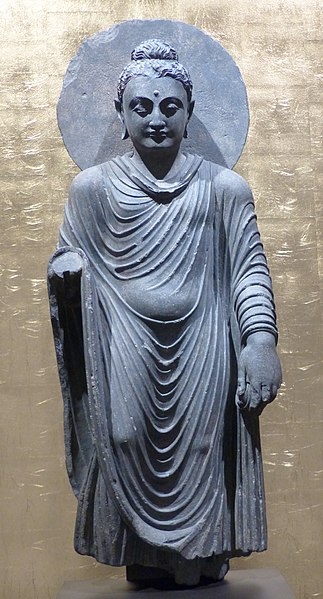Ethics involves systematizing, defending, and recommending concepts of right and wrong behavior. A central aspect of ethics is "the good life", the life worth living or life that is simply satisfying, which is held by many philosophers to be more important than traditional moral conduct.
Ahimsa – non-violence in action, words and thoughts – is considered the highest ethical value and virtue in Hinduism. Above: non-violence sculpture by Carl Fredrik Reutersward in Malmo, Sweden.
Nishidhi stone, depicting the vow of sallekhana, 14th century, Karnataka
Ethics or moral philosophy is the philosophical study of moral phenomena. It investigates normative questions about what people ought to do or which behavior is morally right. It is usually divided into three major fields: normative ethics, applied ethics, and metaethics.
According to Aristotle, how to lead a good life is one of the central questions of ethics.
According to discourse ethics, as formulated by Jürgen Habermas, moral norms are justified by a rational discourse within society.
Philippa Foot was one of the philosophers responsible for the revival of virtue ethics in the 20th century.
The practices of compassion and loving-kindness are key elements of Buddhist ethics.






